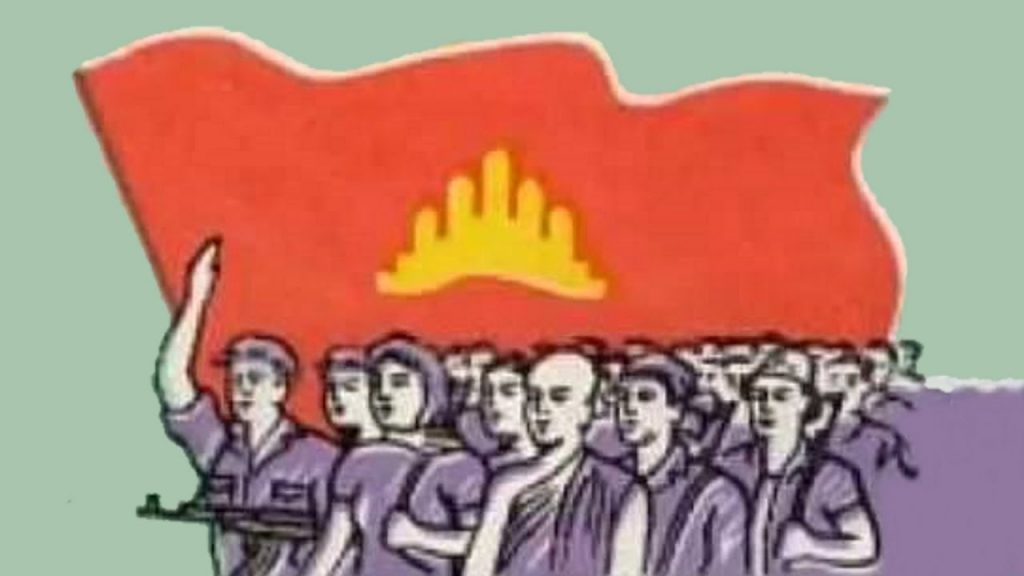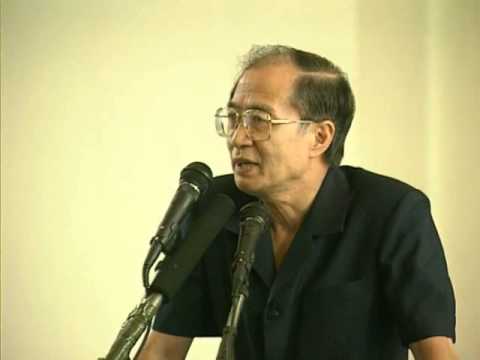On January 8, 1958, King Norodom Suramarit dissolved the National Assembly.
On January 8, 1976, Zhou Enlai, died. The former PRC Premier had a close relationship with Sihanouk that spanned two decades. Sihanouk, who had returned to Cambodia in 1975- reportedly at the terminally ill Enlai’s bequest- was under the guard of the Khmer Rouge. The news provoked suspicion in the Democratic Kampuchea foreign ministry: “We must beware of China. It is true that we owe her a good deal, and it is a great country. But she wants to make us her satellite.”

On 8 January 1979, The KPRC proclaimed that the new official name of Cambodia was the People’s Republic of Kampuchea (PRK). Phnom Penh was captured by Vietnamese troops and Cambodian fighters the day before,

On January 8, 1979, hundreds of Khmer Rouge troops crossed the border into Thailand where they were taken to prison as illegal immigrants. The BBC reported that the Thai authorities said they would not be forcibly returned to Cambodia.
On January 8, 1992, the UN Security Council authorized an additional 1,090 military personnel for UNAMIC. On January 9, 1992. UN Secretary-General Boutros Boutros-Ghali appointed Yasushi Akashi of Japan as special representative to Cambodia.

Around January 9, 1978 (exact date unknown) two Vietnamese photojournalists chanced upon the former site of Tuol Svay Pray High School, and discovered the S-21 Detention Center (know known as Toul Sleng Museum of Genocide).
On 10 January 1968, Sihanouk told U.S. diplomat Chester Bowles , that he would not oppose American “hot pursuit” of retreating North Vietnamese troops “in remote areas”.
On January 10, 1979, Norodom Sihanouk arrives in Tokyo. He had been under house arrest in Phnom Penh under the Khmer Rogue, but was evacuated before the Vietnamese and FUNSK troops reached the city. He gave this interview:
On 10 January 1980, the People’s Revolutionary Council named Ros Samay to lead a council to draft the Constitution. He carefully wrote it in Khmer using clear and easy language whenever possible, mindful that every Cambodian should understand it. He took the constitutions of Vietnam, East Germany, the USSR, Hungary and Bulgaria, as well as previous Cambodian constitutions (Kingdom of Cambodia, Khmer Republic), as a reference. Since Ros Samay’s draft failed to please the Vietnamese, he was publicly discredited and his draft scrapped.
On January 11, 1958, Ek Yi Oun formed a government as prime minister. He goes down in history as holding one of the shortest terms in office in the world- just 6 days later, on January 17, 1958, Penn Nouth replaced him.
On January 11, 1979, a heated debate was heard at the United Nations in New York concerning the situation in Cambodia. The Soviet bloc took the side of the Vietnamese, will China and the ousted regime called for intervention. The minutes can be read in this PDF DOWNLOAD

On January 13, 1953, to further the issue of independence from France, King Norodom Sihanouk declared a state-of-emergency .
On 13 January 1959, in a speech delivered in Kampong Cham, Sihanouk told his listeners that he knew about U.S. intelligence plots to overthrow him.
On January 13, 1960, the Royal Khmer University (later RUPP) opened with a National Institute of Judicial and Economic Studies, a Royal School of Medicine, a National School of Commerce, a National Pedagogical Institute, a Faculty of Letters and Human Sciences, and a Faculty of Science and Technology. The language of instruction during this period was French.
On January 14, 1950, a hand grenade was thrown into the Democratic Party headquarters, fatally wounding Ieu Koeus, who led the National Union Movement. He had been another short-term Prime Minister- in office for just 9 days in September 1949. The man throwing the grenade was captured and arrested, admitting, then later denying, that he was a member of the opposing Liberal party. Blame for the assassination, however, varies from the French, King Sihanouk, Yem Sambaur, and rebel Issaraks, with little evidence available.

On January 14, 1955, a cable was sent from Washington, the Americans seemed exasperated by the French military influence which remained in now independent Cambodia (full cable):
The problem of a bilateral agreement establishing a MAAG, Cambodia, has been discussed in great detail by representatives of the three Services and agencies within the Department of Defense. As a result of these discussions, the following conclusions have been arrived at:[Page 412]
a. As long as the French remain in Cambodia, there will be only token compliance on the part of the Cambodians, due to French influence, in reference to the acceptance of U.S. doctrinal guidance.
b. The French will make every effort to deemphasize the scope, magnitude and effectiveness of a U.S. military aid program for Cambodia.
c. The effectiveness of a U.S. military aid program for Cambodia will be negligible for the reasons stated in a. and b. above, and will represent a major waste of money, effort and the services of critical U.S. personnel.d.The ultimate effectiveness of U.S. efforts in relation to Cambodian military forces will be a responsibility of the Department of Defense and an ineffective program for Cambodia will subject Defense to adverse criticism and cause a further loss of U.S. prestige in the Southeast Asia area.
16. The conclusion arrived at by various Service and Department of Defense representatives as a result of discussions with representatives of the Department of State on this problem is that:
The Department of State will, for reasons of political expediency, attempt to persuade the Department of Defense to accept responsibility for a military aid program to Cambodia even though such a program would be fettered by the bonds of French inefficiency and would produce only negligible results due to French interference.
On January 14, 1985, Hun Sen was officially appointed as chairman of the PRK Council of Ministers.
